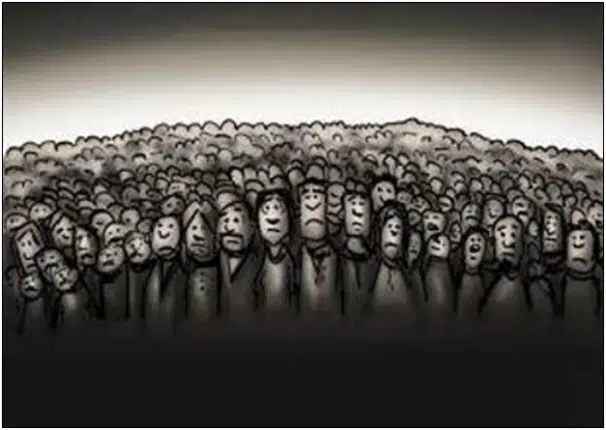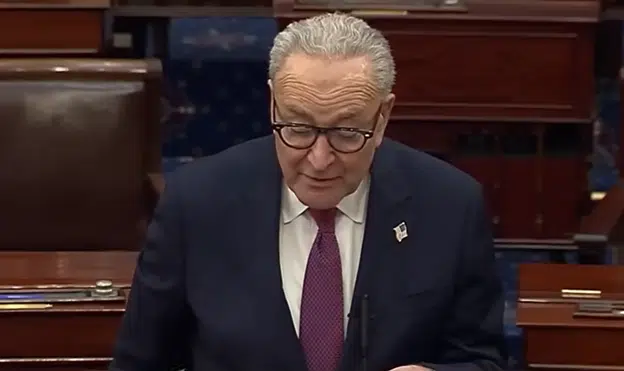Just as President Reagan channeled Thomas Jefferson on July 3, 1987 to interlink his proposed “Economic Bill of Rights” with the ideals of the founding period, contemporary Americans ought to reinstate the 40th president’s call for constitutional amendments that would force the federal government to operate within its means.
Reagan delivered his address most appropriately from the Jefferson Memorial and followed up with a radio address on Independence Day and explained how the key elements of his reform package would help to re-establish checks and balances against federal power. He also identified four basic economic freedoms that were in need of greater protection: 1)the freedom to work 2) the freedom to enjoy the fruits of one’s labor 3) the freedom to own and control one’s property 4) the freedom to participate in a free market.
“Jefferson so fervently believed that limited government was vital to the preservation of liberty that he used his influence to see to it that the Constitution included a Bill of Rights, 10 amendments that spelled out specific governmental limitations,” Reagan explained in his address from the memorial. “ `Congress shall make no law,’ the First Amendment begins. And thus the basic law of our land was constructed to limit government and, in doing so, secure the political rights of people.”
While the Constitution explicitly spells out political freedoms, they are inextricably tied in with economic freedoms that should remain unfettered and free from government control, Reagan observed. Moreover, he added, the public should not be forced to foot the bill for deficit spending. As Tea Party movements continue to gain momentum across the country as a rejoinder against costly and coercive measures in Washington, the time may be ripe to reintroduce Reagan’s Economic Bill of Rights.
A balanced budget amendment that would require more than a mere congressional majority to raise taxes and a line item veto authority that would allow the president strip out wasteful spending are among the central ingredients of Reagan’s proposal. Although the U.S. Supreme Court has since ruled against a line item veto arguing that it violates the separation of powers, other versions have been proposed that may pass legal muster.
Meanwhile, a vigorous debate is taking shape within the framework of the conservative movement today on the merits of constitutional amendments. Some have suggested that returning to the indirect election of U.S. senators would do more to restore the federalist system envisioned by the founders; this can be done by eliminating the 17th amendment. There is also the 16th amendment authorizing the income tax, which dramatically expanded federal power.
Whatever the merits may be over the long-run of either adding or eliminating constitutional amendments, today’s small government activists will find that the sentiment standing behind each of Reagan’s proposals match up very nicely for their own convictions and can serve as a blueprint for congressional candidates who are genuinely devoted to the ideals of the founding period. There was no question in Reagan’s mind that Jefferson would have supported a balanced budget amendment and other economic protections that complemented the political freedoms expressed in the Bill of Rights.
“I’m sure if Thomas Jefferson were here, he’d be one of the most articulate and aggressive champions of this cause,” Reagan said in his address, ”The reason I’m certain is that in 1798 he wrote: “I wish it were possible to obtain a single amendment to our Constitution. I would be willing to depend on that alone for the reduction of the administration of our government to the genuine principles of the Constitution; I mean an additional article taking from the Federal Government the power of borrowing.”
Another component folded in the “Economic Bill of Rights” that deserves special attention today calls for “truth in spending” and would dramatically alter the appropriations process that has allowed for excessive expenditures. Reagan described this provision as follows:
“We propose changes that will ensure truth in spending by requiring every new program to meet this test: If congressional passage of a new program will require increased spending, it must be paid for at the same time, either with offsetting reductions in other programs or new revenues. Citizens of this country, as well as state and local governments, also have a right to be fully informed as to what federal legislation will do to them, what costs will be required for fulfilling the will of Congress. Full disclosure of such costs up front may well temper the desire to over-regulate and over-legislature.”
The idea of offering up offsetting spending cuts as way of alleviating any potential costs associated with new programs is anathema to most federal officials but perfectly fits with public sentiment. Although opinion polls show that voters are poised to vote out Democrats, they are understandably not in love with Republicans who have been complicit in wasteful spending exercises.
When Sen. Jim Bunning (R-KY) opposed expanding unemployment benefits without adequate spending reductions in other areas, he was opposed by the leadership of both major parties. Yet his Reaganesque example can serve as the perfect foil for House and Senate candidates who are running against incumbents who blithely accommodate deficit spending.
The connection between Jefferson’s Declaration of Independence and the Bill of Rights that he and other insisted become a part of the U.S. Constitution should become the subject of larger national discussion in weeks following current July 4 celebrations. As Reagan pointed out in speech and his subsequent radio address, freedom cannot be taken for granted and is always a generation away from extinction.
“We’re still Jefferson’s children, still believers that freedom is the unalienable right of all God’s children,” he said. “It’s so precious, yet freedom is not something that can be touched, heard, seen or smelled. It surrounds us, and if it were not present, as accustomed to it as we are, we would be alarmed, overwhelmed by the outrage, or perhaps struck by a sense of being smothered. The air we breathe is also invisible and taken for granted, yet if it is denied even for a few seconds, we realize how instantly how much it means to us. Well, so, too, with freedom. Freedom is not created by government, nor is it a gift from those in political power.”
The conclusion of Reagan’s radio address connects Jefferson’s concerns with the unsavory financial climate of 2010.
“We the people, deserve to know that our jobs, paychecks, homes, and pensions are safe from the taxers and regulators of big government,” Reagan said. “Jefferson warned us of this threat 200 years ago. Our Economic Bill of Rights is designed to protect the economic freedom of all Americans and to keep our country growing and prospering.”
Honest Americans who have saved and invested for the future are in great jeopardy thanks to renegade federal agents who override constitutional limits. That doesn’t mean it has to stay this way.






